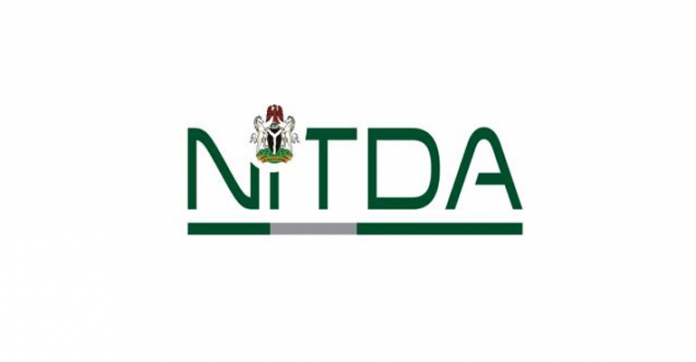Nigeria’s groundbreaking approach to the development of the Nigeria Startup Act (NSA) was applauded by global technology stakeholders during the Deep Tech Roundtable at the 2023 TNW Conference, held at the Taets Art and Event Park from June 15th to 16th.
Kashifu Inuwa Abdullahi, CCIE, the Director General/CEO of the National Information Technology Development Agency (NITDA), attended the conference as a Special Guest and actively participated in several roundtable sessions, including ‘The Assembly’ and the Startup Genome Ecosystem Leadership Forum.
Represented by Dr. Usman Gambo Abdullahi, Director of Information Technology Infrastructure Solutions, the DG highlighted Nigeria’s initiatives aimed at fostering the growth and development of the country’s startup ecosystem. He emphasized that the Nigeria Startup Act, co-created by various ecosystem stakeholders, exemplifies the country’s commitment to Developmental Regulation, one of the pillars of the National Digital Economy Policy and Strategy for a Digital Nigeria (NDEPS).
The NSA project, driven by the Federal Ministry of Communications and Digital Economy in collaboration with Nigeria’s tech ecosystem and the Presidency, aims to harness the potential of Nigeria’s digital economy through co-created regulations.
The Act’s objectives include providing an enabling environment for startup establishment, development, and operation in Nigeria, creating a legal and institutional framework for startups, fostering the growth of technology-related talent, and positioning Nigeria’s startup ecosystem as Africa’s leading digital technology center with exceptional innovators possessing cutting-edge skills and exportable capacity.
The DG explained that the Act consists of ten parts, covering five drivers: collaboration, engagement, incentives, linkages, and support. One significant provision is the establishment of the National Council for Digital Innovation and Entrepreneurship, presided over by the President as Chairman. The Council includes representatives from the Federal Executive arm of Government, the Director General of NITDA as Secretary, the Nigeria Computer Society, the Computer Professionals Registration Council of Nigeria, and the Startup Consultative Forum.
Its responsibilities encompass monitoring and evaluating regulatory frameworks, formulating and implementing policy guidelines, overseeing the harmonization of laws and regulations, and promoting the development of startups in Nigeria. NITDA will serve as the Secretariat of the Council, with the DG holding the dual role of Secretary and Head of the Secretariat.
Additionally, the DG highlighted the establishment of a Startup Support and Engagement Portal, which serves as a centralized platform for startups to register with all relevant regulatory agencies. This streamlined approach saves time and reduces costs associated with engaging multiple agencies individually, aligning with the Presidential Enabling Business Environment Council’s provisions to enhance the ease of doing business within the tech ecosystem.
Furthermore, the DG mentioned the creation of a Startup Investment Seed Fund, to be managed by the Nigeria Sovereign Investment Authority (NSIA). The fund targets early-stage startups, hubs, and entities supporting the startup ecosystem. It will be funded annually with a minimum of N10,000,000,000.00 (Ten Billion Naira) to provide financing in the form of seed funds, grants, or loans.
The DG expressed optimism about the Act’s potential to revolutionize the startup ecosystem in Nigeria and called upon stakeholders to support the Secretariat in maximizing its benefits.
Stakeholders in attendance praised Nigeria’s innovative approach and viewed it as a model for co-created regulation that others should emulate. Matt Smith, Director of Policy and Research at the Global Entrepreneurship Network (GEN), commended Nigeria’s unprecedented developments in the startup ecosystem.
He noted that governments often struggle to empower entrepreneurs due to complex reforms, policies, and programs spanning multiple departments. Without central coordination, such reforms may encounter obstacles such as limited legislative capacity or conflicting






